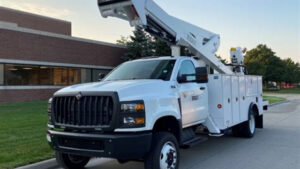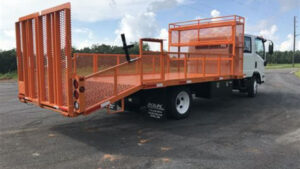If you’re looking for a career in the trucking industry, becoming a regional CDL driver may be a great choice for you. A regional CDL driver is someone who transports goods within a specific region or area, typically spanning a few states or a specific area within a state. This type of driver often returns home on a regular basis, and may even be able to be home every night. Regional CDL drivers operate a variety of trucks and equipment, and must hold a commercial driver’s license (CDL) to legally transport goods across state lines.
What Does it Mean to be a Regional CDL Driver?
If you’re considering a career in truck driving, you might be wondering what a regional CDL driver is and what they do. A regional CDL driver is someone who holds a Commercial Driver’s License (CDL) and primarily operates within a specific region or area.
Here are the ten important things you should know about being a regional CDL driver:
1. Regional Driving Routes and Hours
Regional CDL drivers typically work in a specific region and usually have set driving routes and schedules. These drivers often return home frequently and have more predictable work schedules than long-haul CDL drivers.
2. CDL License Requirements
Like all commercial truck drivers, regional CDL drivers must have a valid CDL license. This license requires special training and testing, and drivers must meet specific age and health requirements.
3. Educational Requirements
Regional CDL drivers must have at least a high school diploma or equivalent, although many also have completed some post-secondary education or vocational training.
4. Vehicle Maintenance and Upkeep
Regional CDL drivers are responsible for the maintenance and upkeep of their vehicles. This includes regular inspections, minor repairs, checking fluid levels, and keeping the vehicle clean and presentable.
5. Safety and Compliance Regulations
All CDL drivers, including regional drivers, must follow strict safety and compliance regulations. This includes adhering to hours-of-service regulations, cargo weight limits, and rules on distracted driving.
6. Customer Service and Interpersonal Skills
In addition to driving skills, regional CDL drivers also need good customer service and interpersonal skills to interact with clients and co-workers in a professional manner.
7. Proximity to Home
One of the biggest draws of regional CDL driving is the proximity to home. Drivers are often able to return home more frequently than long-haul drivers, which can make the job more appealing to those who value spending time with their families.
8. Pay and Benefits
The pay and benefits for regional CDL drivers vary depending on the employer and location, but generally, the pay is competitive with other truck driving jobs, and benefits may include health insurance, retirement plans, and paid time off.
9. Job Outlook and Opportunities
The job outlook for regional CDL drivers is strong, with an expected increase in demand over the next decade. There are also opportunities for advancement into supervisory or management roles.
10. Personality Traits and Skills
To succeed as a regional CDL driver, you should have good communication and problem-solving skills, a strong work ethic, and the ability to work independently. You must also be comfortable with long hours of driving and be able to handle the stress of traffic and changing weather conditions.
In conclusion, being a regional CDL driver is an excellent career choice for those who love to travel and have an independent spirit. With the high demand for drivers and competitive pay and benefits, it’s a fantastic opportunity for anyone looking for a challenging yet rewarding profession.
What is a Regional CDL Driver and Who Can Become One?
1. Understanding the Role of a Regional CDL Driver
A Regional CDL (Commercial Driver’s License) driver is a specialized professional who operates a commercial vehicle within a particular geographic region. These drivers often transport goods and merchandise over short to medium distances. Their job entails ensuring the timely, safe, and efficient delivery of goods, materials, and products to various clients or businesses within their region.
2. Regional CDL Driver Qualifications
To become a Regional CDL driver, one must meet specific qualifications. These qualifications include a valid commercial driver’s license, clean driving record, prior driving experience, and fundamental knowledge of commercial driving regulations. Additionally, employers look for drivers who can work independently, efficient, and possess excellent customer service skills.
3. Duties of a Regional CDL Driver
The primary responsibility of a Regional CDL driver is to transport goods within a designated area. They also perform tasks such as inspecting and maintaining the vehicle, reporting issues, and keeping accurate logs. Additionally, they must adhere to safety protocols and regulations, ensure that the load is secure, and promptly communicate with dispatchers or central offices.
4. Work Schedule and Compensation
Regional CDL drivers typically work full-time and often have flexible work schedules that can include night, weekend, and holiday shifts. Compensation varies depending on the employer, location, and level of experience. Most employers offer competitive pay, benefits, and overtime pay for qualifying hours.
5. Career Advancement Opportunities
Regional CDL drivers can advance their careers by proofing their ability to handle more complex routes, bigger vehicles, or specialized equipment, leading to better-paying jobs for experienced drivers or even management positions. Employers typically offer training programs to enhance driver skills and develop industry-specific knowledge.
6. Essential Skills Required for the Job
Driving a commercial vehicle as a Regional CDL driver requires specific skills that candidates must possess. Candidates should have excellent driving skills with a proven track record, strong communication skills, ability to read and understand maps, accurate record keeping, and time management skills.
7. Education and Training Requirements
The educational requirements for becoming a Regional CDL driver is a high school diploma or GED equivalent. However, a formal commercial driving course certification or diploma would add valuable knowledge and skills that are crucial in the field. Additionally, most employers offer on-the-job training programs that include classroom instruction and on-road practice.
8. Growing Demand for Regional CDL Drivers
The demand for Regional CDL drivers continues to grow as the economy expands and with the increase of online shopping. More drivers are needed to meet the demand for last-mile shipping and other logistics services. The Bureau of Labor Statistics estimates a 2% growth rate in employment for Heavy and Tractor-Trailer Truck Drivers by 2029.
9. Work-Life Balance for Regional CDL Drivers
Regional CDL drivers have better work-life balance than long-haul truckers. They can return home daily or every other day, allowing for a better work-life balance. Additionally, they can plan their schedules and be home on weekends, birthdays, or special events.
10. Conclusion
A Regional CDL driver is a specialized professional whose job entails timely, safe, and efficient delivery of goods, materials, and products to various clients or businesses within their region. To become a Regional CDL driver, one must meet specific qualifications and possess critical skills such as strong driving skills with a proven track record, excellent communication skills, ability to read maps, accurate recordkeeping, and time management skills. As the economy expands and the increase in online shopping, the demand for Regional CDL drivers continues to grow.
What are the requirements to become a regional CDL driver?
Driving a commercial vehicle as a career choice is not as simple as getting behind the wheel of a car. There are numerous requirements to become a Regional CDL driver. Below are some of the requirements that you must meet to qualify for the job:
Age restrictions
One must be at least 21 years old to obtain a commercial driver’s license (CDL) in most states. To be a regional CDL driver, you must be at least 21 years old and have a clean driving record.
Driver’s License
To start the process of acquiring a commercial driver’s license, you must possess a valid driver’s license that has not been suspended or revoked.
Medical condition
You will be obliged to pass a health evaluation that assesses your visual, auditory, and general health levels before obtaining a CDL. You must have a good health condition to be a regional CDL driver.
CDL Training and Test
Before you can get a CDL, you must go through CDL training and pass a tough written exam for the state where you intend to work. Subsequently, you need to pass a driving test as well as present proof of your qualifications and experience.
Driving Record
Companies that hire regional CDL drivers typically favor drivers with a clean driving record because a single ticket or accident may disqualify you from the job. You must maintain a clean driving record to be a regional CDL driver.
| Requirements | Details |
|---|---|
| Age restrictions | Minimum of 21 years old to be a regional CDL driver |
| Driver’s License | Must have valid driver’s license |
| Medical condition | Must pass health evaluation |
| CDL Training and Test | Must pass CDL training and written and driving exam |
| Driving Record | Must have a clean driving record |
Here are some possible relevant links for the article about “what is a regional cdl driver”:
– If you’re wondering about what a CDL is in the first place, check out this page for a brief overview of Commercial Driver’s Licenses and their types.
– For a more detailed explanation of what a regional driver is and what they do, you might want to read this guide, which covers the benefits, requirements, and challenges of being a regional truck driver.
– If you’re interested in becoming a CDL driver yourself and want to know what steps you need to take, this article offers a step-by-step guide to getting your CDL license and finding a job as a truck driver.
Thanks for reading!
We hope this article helped you understand the role of a regional CDL driver. Remember, these professionals are able to balance the freedom of the open road with the familiarity of their home region. It’s a unique and challenging job that requires a special set of skills. If you have any questions or comments, please feel free to leave them below. And don’t forget to come back for more interesting articles on the world of trucking!


